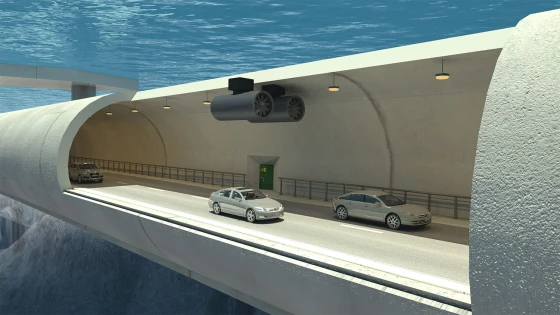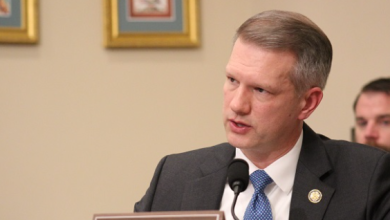Lead
FG announces plans for underwater tunnel, coastal highway upgrade

The Federal Government has announced an ambitious plan to build an underwater tunnel in Lagos, connecting Ahmadu Bello Way in Victoria Island to Snake Island.
This tunnel would serve as a vital link between the Lagos-Calabar Coastal Highway and the Sokoto-Badagry Superhighway, making it easier for people and goods to move around the city.
According to the Minister of Works, David Umahi, the tunnel is a key part of the government’s plan to improve road connections in Lagos.
“This tunnel will help traffic flow from central Lagos through the lagoon to Snake Island, and then on to Badagry.
“From there, it will connect to the larger highway leading to Sokoto, opening up new routes for trade and transportation, ” he said.
The government is also making progress on the 750-kilometer Lagos-Calabar Coastal Highway project.
The first phase of the road, which started in March 2024, covers 47.47 kilometers and is designed as a six-lane expressway with space for a future railway.
Umahi disclosed that around 15 kilometers of the road have been completed, starting from Ahmadu Bello Way, also known as Drainage Zero.
”The government hopes to finish 30 kilometers of this section by May 25, 2025.
”This will include a 20-kilometer continuous stretch from Victoria Island and an extra 10 kilometers near Eleko Junction.
Umahi also said that some construction work was delayed due to issues like sand settling and ocean waves around Drainage 13.
He, however, assured that these problems were being fixed to keep the project on track.
“Work is also moving forward on Section 2 of the highway, which runs 55 kilometers from Eleko to the Lekki Deep Seaport and the Dangote Industrial Corridor,” Umahi added.
About 10 kilometers of this part were expected to be completed soon.
Flyovers are also being planned to reduce traffic and make it easier to move goods in and out of the area.
The Lagos-Calabar Coastal Highway project is a massive infrastructure development initiative aimed at improving connectivity and facilitating trade and transportation along the coastal region of Nigeria.
When completed, the highway would provide a faster and more efficient route for goods and services, boosting economic activity and development in the region.
Umahi’s announcement has generated excitement and anticipation among Lagos residents and businesses.
Many are eagerly awaiting the completion of the tunnel and the highway, which they believe will ease traffic congestion, reduce travel times, and improve the overall quality of life in the city.
As the government works to deliver on its infrastructure promises, citizens are hopeful that these projects would have a positive impact on their daily lives.
With the planned underwater tunnel and the Lagos-Calabar Coastal Highway, Lagos is set to become a more connected and prosperous city.
The underwater tunnel would not only ease traffic congestion but also provide a new route for trade and transportation.
This would significantly impact on the economy, as goods and services would be able to move more efficiently and effectively.
In addition to the economic benefits, the tunnel and highway would also improve the quality of life for Lagos residents.
With reduced traffic congestion and faster travel times, people would be able to get to work, school, and other destinations more easily.
The Federal Government’s plan to build an underwater tunnel and improve road connections in Lagos is a welcome development.
It would have a significant impact on the economy and the quality of life for residents, making Lagos a more attractive place to live, work, and do business.
The government must ensure that the projects are completed on time and to a high standard.
This would require careful planning, effective project management, and a commitment to delivering quality infrastructure that meets the needs of the people.



